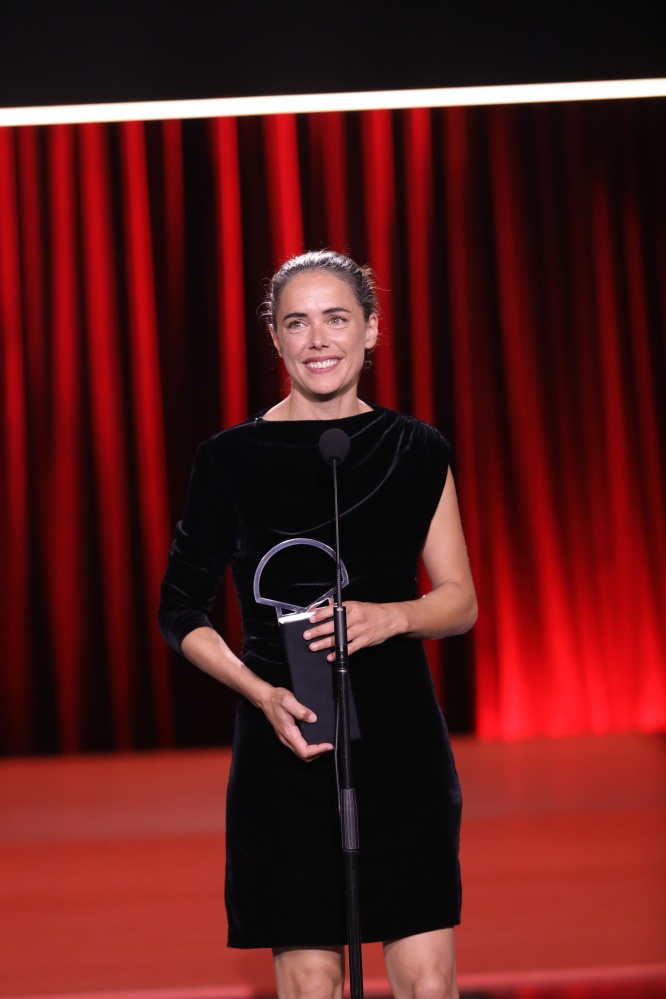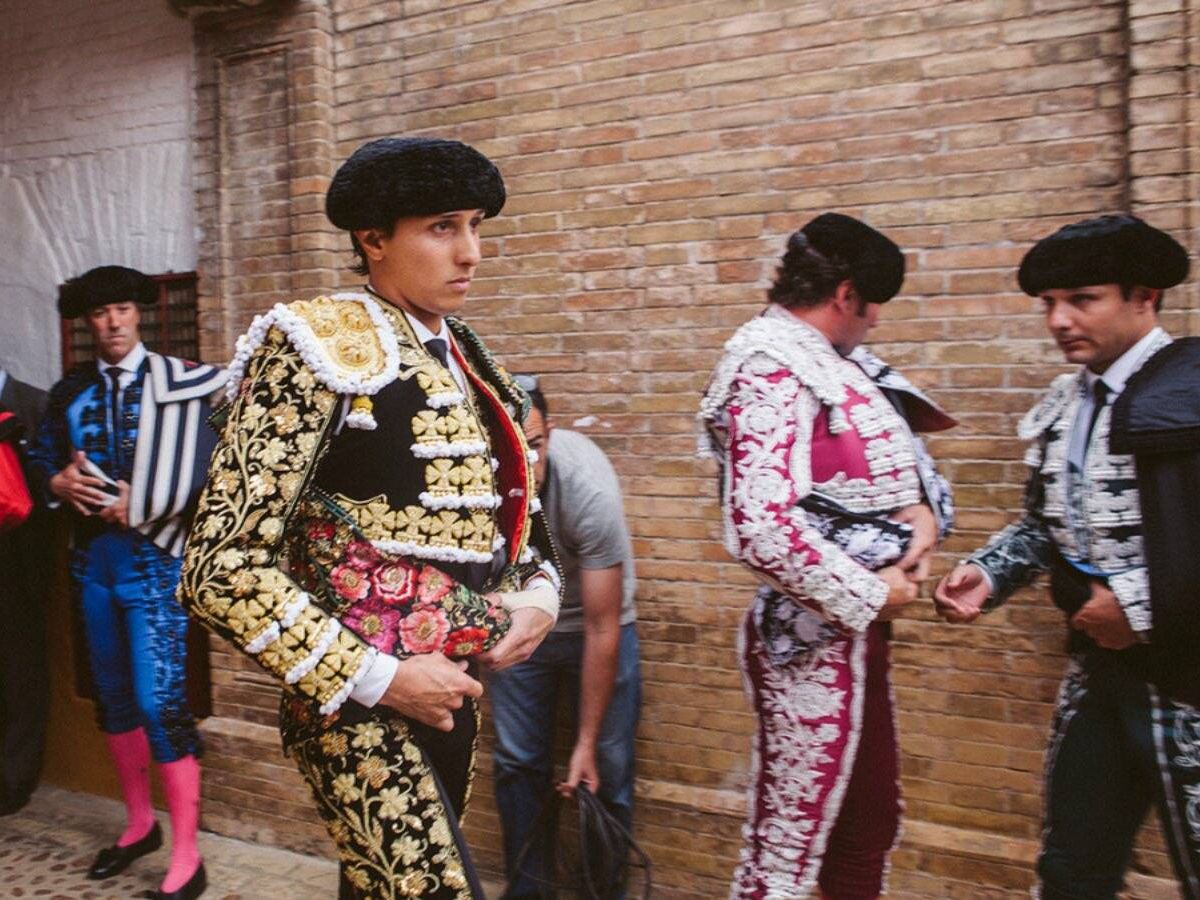"We didn't come to compete with anyone, but to tell our stories."
- Angels Cruz is a filmmaker, but he forgets all the patriarchal, racist and capitalist dynamics of this industry. Being Misteka an indigenous and lesbian people, one of the most repeated words by Cruz is the "community". Hence, she does film and is not afraid of thorny issues, such as sexual abuse, grief and violence against women.

ANGELS CRUZ. MEXICO, 1969
Born and educated in a mixed community in the mountains of Oaxaca, he had to move from youth to the city after the death of his father. He studied theater and started as an actor in the movie world. In the decade of 2010, however, he started writing scripts and directing movies from a strong community perspective. He has published three short films and two feature films and has received several awards.
Last year he received the Zinegoak Festival’s gender and lesbian award with The Mixtec Knot. This year they have given you the great prize of the festival. How did you take it?
I feel at home, protected. Mexico is an absolutely racist, classicist and homophobic country, and this embrace of Zinegoak serves us to extend our territories and reaffirm our diversity as a whole. This is a big deal for our indigenous communities.
What is the place of the community in its work?
In this society individualism is flourishing, we are told that we have to compete with others, which must be highlighted. But I think we have to walk in community. I come from a place called Villa Guadalupe Victoria, where we live according to our own standards, we work communal lands, and I make movies. To this life we did not come to compete, but to walk the road together.
How does this approach materialise in film production?
We've tried to create a different system for making films. The heads of each area get the same pay, and the community also pays. I ask permission from my community before I start rolling on it. I present my project to the House and have been given absolute freedom to talk about the issues I want, in the terms I have decided. And that implies a responsibility, an ethical responsibility towards the community itself. In my case, I like fiction, it gives a great freedom to talk about what we want and question some aspects of our lives.
"I ask permission from my community before I start rolling in it; I present my project to the assembly."
All this doesn't match the matrix of the film industry, right?
That is true. We didn't come to compete with anyone, we placed our stories where we want, with the people we want, and we looked for spaces to show our films. The destructive audiovisual industry is only seeking economic benefit. We don't. We want to tell stories so that they reach out to other people and they can look for their answers to our questions. That's how I get the movies, that's how it came to me.
If I am not mistaken, you only saw a film until you were 16.
Yes, El joven Juárez, on the first indigenous president of Mexico. My father had that film and projected it on a wall. Knowing this, you will fully understand the impression he made me when I first went to the movies to watch a movie on the big screen. It was a revelation, it changed my life, and I think cinema has that ability: no matter where you are or who you are, it excites you, it transports your soul to other worlds. This capacity still fascinates me.
.jpg)
She started as an actress.
I wanted to be an agronomist and work the land. But when our father died, we went to the city, because my mother had arthritis, and our community is very wet. We went to Oaxaca, and in high school, I met all kinds of arts. The theater cost me a lot. I talked very little at the time and it was a challenge for me. What cost me the most, that's what I wanted to do; it was so heady since I was little [laughter], and I went to Mexico City to study theater.
Her first job was Puma's daughter. It
was about the massacres against indigenous communities in Guatemala, and I think it was a good way to start my career, but over the years I realized that I was always asked for similar characters. As I say, our country is very racist, classicist and homophobic, and I was only offered stereotyped characters. Those characters were treated from very negative perspectives: he was a victim or a criminal. The color and constitution of the skin influence it. One day I got tired and started saying no. There I felt the need to write and tell our stories. So I went back to the community and started telling our stories.
"Our communities are very patriarchal and macho. The issue of indigenous lesbianism has hardly been addressed and for me it was important to put lesbian women in the context of my community"
In 2011 he made his first short, The Tiricia, or how to cure sadness. It's about childhood sexual abuse.
In the midst of an actor crisis, a person very close to my family told me that I had experienced sexual abuse in my childhood, forty years before or. I was not able to hug him, I felt emotionally very clumsy and I was left with that sadness. I stayed inside, didn't give in at peace and felt the need to leave. With the help of a friend, I wrote the script and saw clearly that I wanted to make the film in my community.
Why?
In short, it was a case of abuse, caught in a circle of violence and silence. How do you break that circle? Well, through my culture and my language, making self-criticism and from there history. There I understood what I wanted to do in life, I discovered my place.
People find it hard to talk about child sexual abuse, even more so when it occurs in their environment. What reception did the work have? At
the end of the movie, we put it in a thousand places, but the hardest thing for me was to introduce it to my community. Seeing that the other members of my community had just one movie like me, we prepared a film cycle. With other movies, people laughed, screamed at the screen, reacted. But when ours started, they died. It was terrible: no applause, no comments…
One day a
child took the word and said that he was not like the characters in the movie, and that if his sister did something, he would not remain silent, would tell his parents or would scream. And thanks to the words of this 11-year-old boy, we started talking. The film takes ten minutes, and then we spent two hours. We are talking, among other things, about the responsibility that adults have on this issue: we must be attentive to the conduct of children and to the warning signals both in the classroom and in the day-to-day. In addition, it should be taken into account that rural children do many hours walking and alone. It was a very broad reflection.
In his second short, La carta, he worked lesbianism.
I think sexual diversity has been taboo in our communities. The muxes of the isthmus of Tehuantepec are usually idealized [the zapotec constitutes a sexual identity of the people, outside the binary rule of gender], but in reality our communities are very patriarchal and machista. The issue of indigenous lesbianism has hardly been addressed, and for me it was important to put lesbian women in the context of my community, to open the door, to come out of the closet and to name ourselves. If not, it does not seem to exist.
It can be said that the film has a happy ending: the two protagonists meet after many years and decide to make their vital project together. But for that they leave the community. It's true that it's a very realistic ending, but why did you decide to go around?
That is precisely why. It is often possible to transform areas of oppression, but not others. Many lesbian women in the communities have left the community for that reason, and in that action there is an attempt to seek freedom, they are not leaks, but conquests of new territories. We live in the world, in the universe, and we have to walk together in other places. We need to create other communities, new communities.
Not only have you left the community, but also the stories of those who come back to the community. For example, in the feature film Nudo Mixteco.
Yes, when I wrote the script, I thought it was a story about migration, because the protagonists are three women who return to their community during the patron saint festivities. But I realized that these three women basically claimed their rights: the right to decide on their first territory, that is, on their own body, and, on the other hand, the right to enjoy. Women have had to fight hard to have freedom about our joy and our body. From the outside they always question our decisions, our appearance, who we want… And to be the owner of it we have had to fight all women for the same battle.
Another very interesting aspect of his films is the treatment of language. The Spanish and the two mistecas appear. The
script is written in both languages, and that was a very conscious decision, because both languages are spoken in the communities. Then, at the time of recording, each actor could choose the language in which to speak, where he felt most comfortable. Languages are also our territories and they have taken us away. Now everybody wants to speak English, and they worry if you don't know English. It's not my first language. Misteka is my first language, Spanish the second, I think it can be enough with that.
Just finished your second feature, Valentina or serenity.
It's about childhood grief, I wrote it in 2020. When I was nine years old, we lost my father, in a car accident, and when the pandemic started in 2020, I was really scared. I remembered the vulnerability of childhood; in another time, I shared that pain only with my little brother: in order not to accept that inevitable loss, we invented that my father was somewhere else and a thousand other stories.
The recording process has been especial.En the first reading of
the script, in the midst of a pandemic, my brother called me saying I had coexistence. Then I turned to him, because I needed oxygen; I also caught, of course, and eventually my brother got worse and died. It was a blow to me. I had absurd thoughts, I thought I called death. It was a very difficult year, but look, in 2021, I became part of the authority of my community, and as a result of that designation I had to stay in the community working for everyone.
.jpg)
Could you explain to me a little more what that designation is?
It's like a service, don't suck. I got really angry, I was about covid-19 and we were also presenting Mixtec Knot. When you are in this community service, you have to apply for permission to leave the community and you only have four permits. And he doesn't know what helped him. I said, OK, you have to accept what happens. I mean, I was going to introduce the film, but I had to immediately go back to the community and buy food for the masons, or clean the park or whatever it took. This helped me a lot and also during that time we recorded the film. We are now in the post-production phase and we hope to release it this year.
What do you do now? I'm
doing two scripts, one for a friend and one for an animation project. On the other hand, my community has long been in a serious territorial conflict, an attack has recently taken place and the community itself has asked me to gather images and testimonies. It's one of the hardest things I've ever been asked for. I have never wanted to make a documentary, I think it is a very delicate field, the ethical line is very fine and it has to be worked with dignity.
"When you're in this community service, you must apply for permission to leave the community and you only have four permits."
Could you explain to me what this conflict is?
40 years ago we had a serious territorial conflict with the neighbouring community. We have been eating the territory and this year violence has increased. The authority of our community went to the state authority to open a dialogue table and calm the pot a little under pressure. Agreements were reached on 2 May, and on 12 we were to sign, but before 5 May, the other community attacked us very violently with long weapons and a paramilitary command. Three people were killed and many others wounded. Fortunately, our community has been able to keep calm, but two months have passed and we have not yet received justice.
A lot of strength for this road. Would you like to add something more?
With regard to the prize, I would like to reiterate my thanks for this hug. Zinegoak has done an exciting job over the past 20 years, they've formed a free and diverse community. This is fundamental in a competitive and individualistic world. The creation of these spaces in our territories is fundamental, and the community itself must estimate it.
Edurne Azkarate said from the micro stage that the Basque film has little Basque in the celebration of the San Sebastian Film Festival. The phrase echoes for its truthfulness. In the architecture scene you can repeat the same motto and I am sure that in so many other cultural... [+]
Bound in Heaven
Address: Xin Huo
Country: China
Duration: 109 minutes
Premiere: Not implemented
Run away from death, forward. The man who suffers a terminal illness will do so, along with his lover, friend and travel partner. A hard but positive film, with good image... [+]
And that was Saturday and not Sunday. It was hard for him to clear up the day, because there were far fewer people on the street and there was no hurry. Some soon approached Kursaal and Victoria Eugenia Theatre, where they projected the closing movie of the night, We Live in... [+]
The ninth and final day, at a special festival that will remember me with great affection. Leaving two films risky for the last day, I'm writing this first chronicle with the music of a bar, because I didn't like the movie I saw before.
I've seen Ulysses in the program of the... [+]
The Gasteiztarra Patricia López de Arnaiz has been made with the Goya the best lead actor at the 72 San Sebastian Festival. In the Zinemaldia, for his work in the film 'The Flashes', directed by Pilar Palomero.
The film is based on the first narrative of Eider Rodríguez's book... [+]







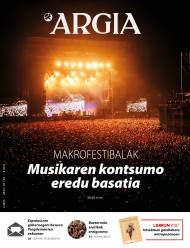

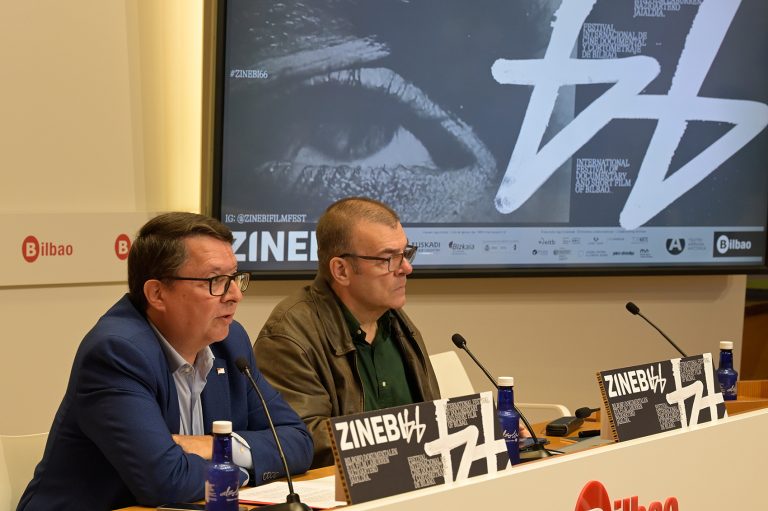
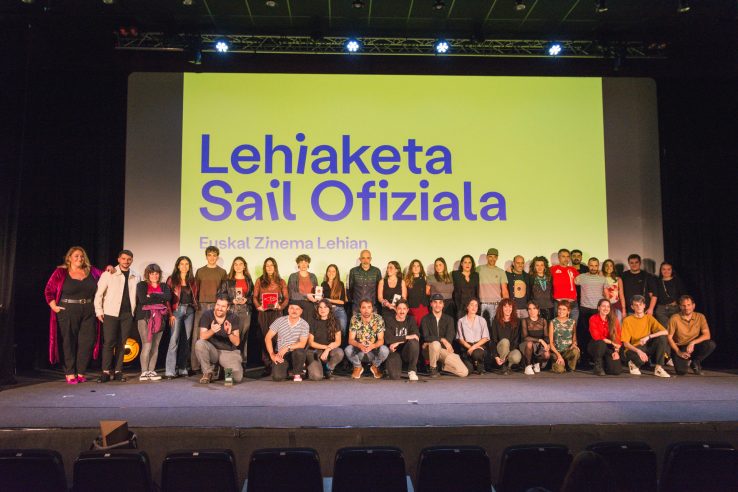
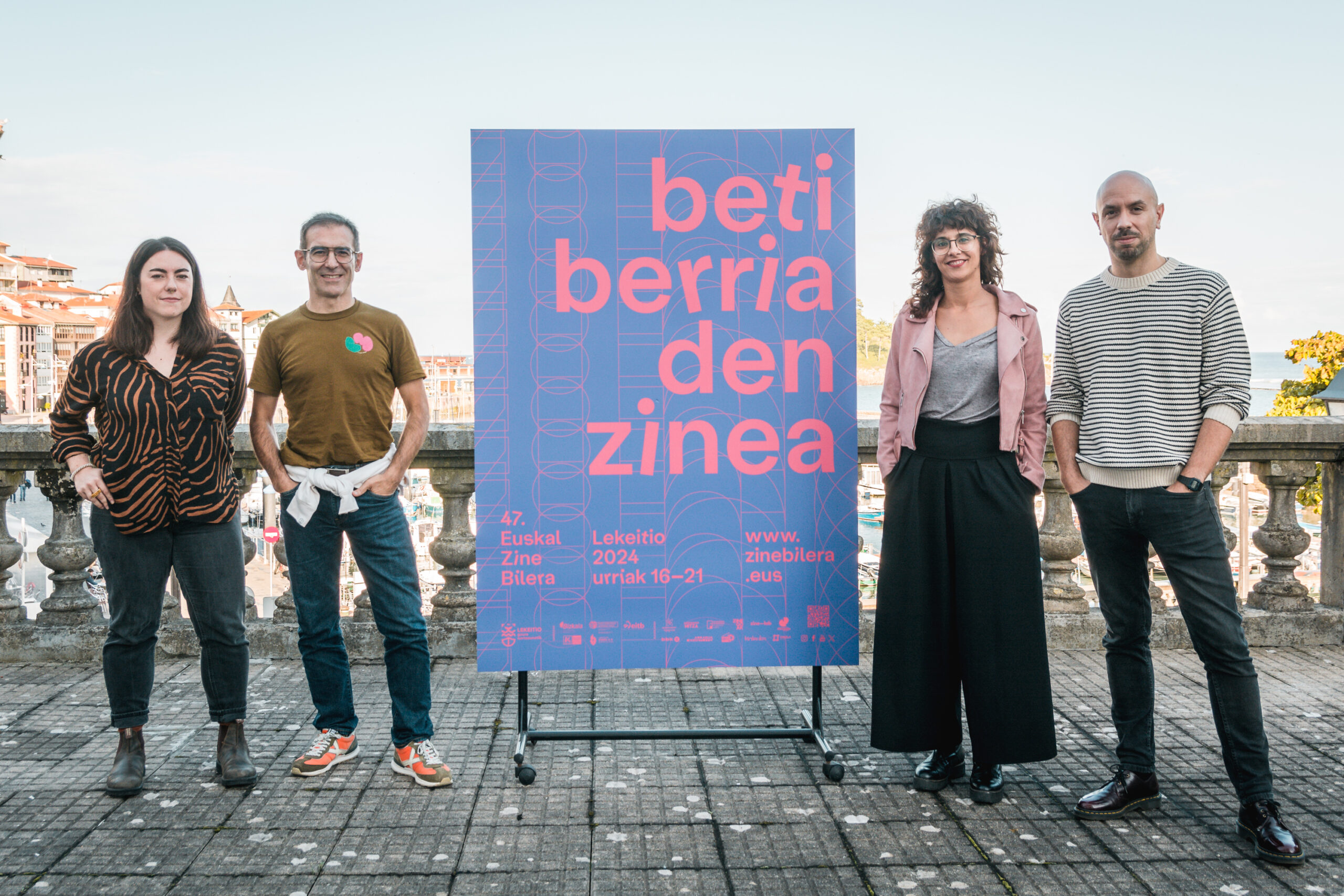
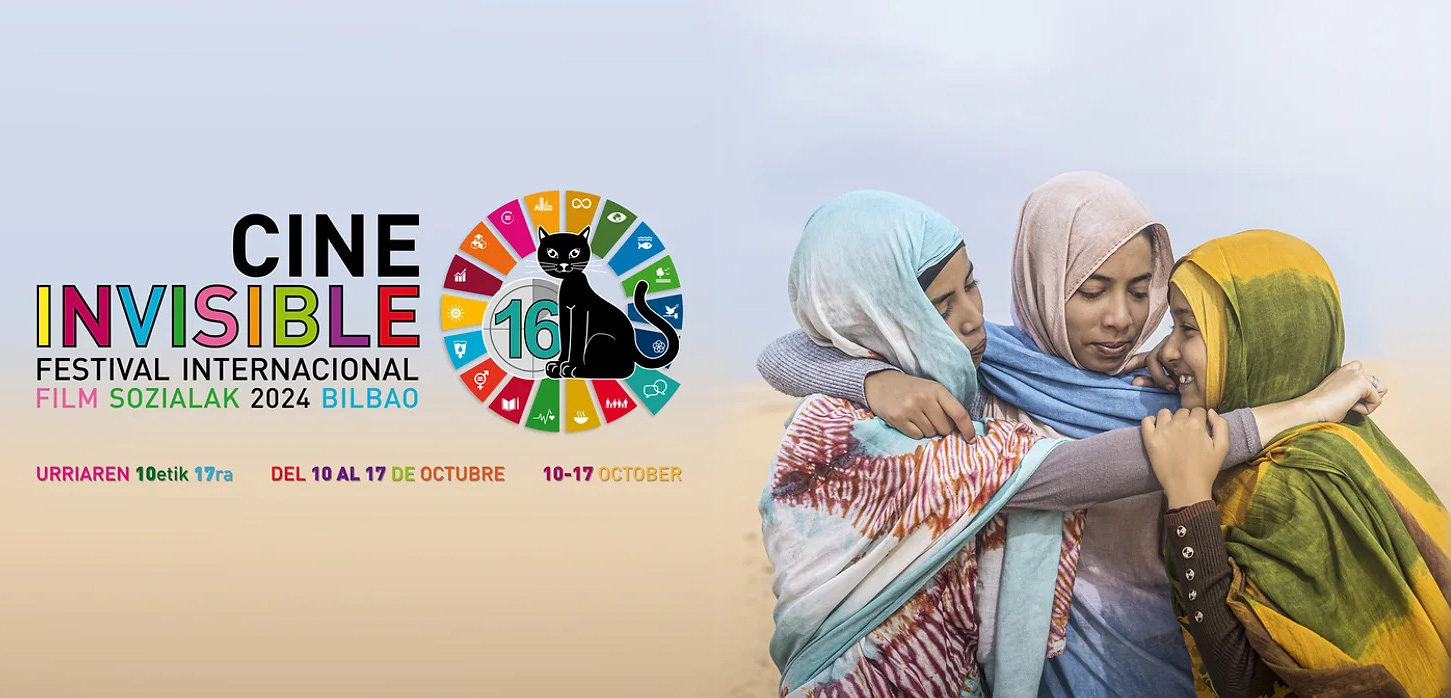


.jpg)




